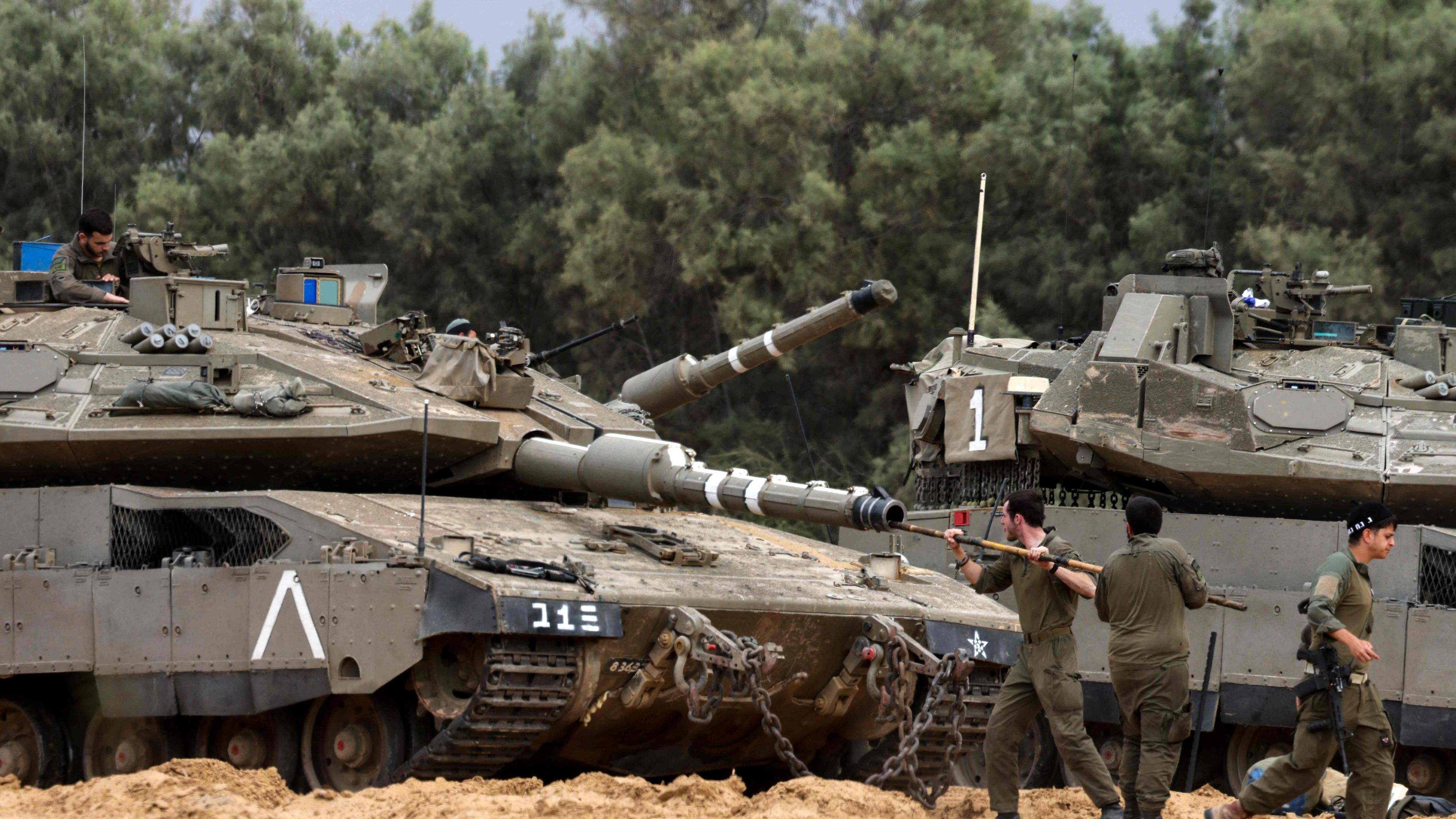Why the signs in the Middle East are back on escalation

After the stroke of a Huthi rocket near Ben Gurion Israeli Airport, the central topic at the meeting of Israel’s security cabinet on Sunday evening was: In addition to a new offensive in the Gaza Strip and ever further interventions in Syria, according to media reports, attacks on the Huthis on Yemen were on the agenda. But the confrontation course of Prime Minister Benjamin Netanyahu not only causes criticism in the opposition.
« If you harm us, we will meet seven times as hard, » threatened Defense Minister Israel Katz After the explosion near the airport. It was the first time since the end of the ceasefire in the Gaza Strip in mid -March that a rocket of the proiran militia broke the Israeli interceptors. According to the rescue worker, six people were slightly to moderately injured.
Katz ‘threats sound combative, they could change little. So far, according to the conflict data organization ACLED, air strikes have brought little success, not even the US attack series on more than 800 destinations since US President Donald Trump took office. The Proiran rebel group exposed its fire that started after the Hamas terrorist attack on October 7, 2023 only during a two -month ceasefire between Israel and Hamas in the Gaza Strip at the beginning of this year.
Luxembourg must finally recognize Palestine
Israel wants to keep NGOs away from the distribution of humanitarian aid
With a view to the Gaza Strip, Israel’s government is also planning to expand his attacks: According to the army, tens of thousands of reservists are to be convened. This causes displeasure. On the one hand, many reservists want to appear to be part out of exhaustion, some of them for political reasons. There is talk of more than 100,000, there are no exact figures. On the other hand, doubts about the war goals grow.
Netanyahu recently described the victory over Hamas as the « top goal ». In surveys, however, more than two thirds support the end of the war for an release of the hostages that are still caught in Gaza. Army chief Eyal Zamir, in many ways on Netanyahu’s line, also speaks to the return of the hostages as the primary war goal.
If the Israeli government is doing, NGOs would have to keep their fingers away from distributing humanitarian aid. In the future, only the army and private security companies will. Photo: Abed Rahim Khatib / dpa
There is also a dispute with another topic: According to media reports, Israel’s government wants to distribute humanitarian aid through the army and private security companies. Zamir should refuse, among other things, out of concern for the security of the soldiers.
Humanitarian NGOs have convicted the plan as incompatible with humanitarian principles. After two months of Israeli blockade, the Gaza Strip is facing « one of the worst humanitarian disasters of the recent past, » says Jacqui Corcoran from the aid organization Oxfam at a press briefing.
Like Israel’s government under pressure through war refusers
The Israeli proposal should not change anything. According to a report by the Washington Post, around 60 trucks are planned for more than two million people a day. The head of an international aid organization spoke to the newspaper of a tactic that is primarily intended to reduce international pressure. European allies, including Germany, had recently demanded that they would allow aid deliveries again.
Worry about confrontation in Syria grow
The signs also focus on escalation on Israel’s northern border: According to a series of Israeli attacks in Syria, the army leadership, according to the « Haaretz » newspaper, is concerned to be involved in a further conflict and in confrontations with the Turkish army, which is also active in Syria. Israel had described the attacks as a warning after fatal attacks on members of the Drusian minority in southern Syria.
Israel is selectively committed to certain drusian factions and disregards the Sunni-Arab populations of Daraa and Quneitra.
Ömer Özkizilcik
Atlantic Council
Parts of the Israeli druses, many of which serve in the Israeli army themselves, support this. Others see it a danger to their faith brothers in a Syria, the numerous communities of which we struggle to form a state again after years of civil war. They suspect the Israeli leadership of abusing the Drusen as an excuse to expand their influence over Syrian territory.
A new conflict could arise on the northern border of Israel. Photo: AFP
A mistake for Ömer Özkizilcik from the « Atlantic Council » thought factory: « Israel is selectively committed to certain drusian factions and disregards the Sunni-Arab populations of Daraa and Quneitra, » he writes. In Israel’s government, the ex-rebel leader and new Syrian leader Ahmed al-Sharaa and his promise not to seek a conflict with Israel are not trusted. However, according to Özkizilcik, a split Syria could mean new threats in the long term.








